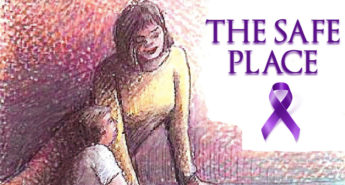 February 7th is Safer Internet Day, a day in which attention is called to the internet to make it a safer place for children. The internet is full of scammers, people trying to take your information, and bullies. Traversing the internet is fun, but to do so safely can be difficult especially for children who may not know of the dangers they face. Luckily, there are many resources available to help parents stay in the know when it comes to internet safety and their children.
February 7th is Safer Internet Day, a day in which attention is called to the internet to make it a safer place for children. The internet is full of scammers, people trying to take your information, and bullies. Traversing the internet is fun, but to do so safely can be difficult especially for children who may not know of the dangers they face. Luckily, there are many resources available to help parents stay in the know when it comes to internet safety and their children.
The internet, while it may seem like a pretty safe activity, is full of people who will take advantage of anonymity to cause harm to others. This harm is not reserved to scams and identity theft, bullying is also a large problem. There are many creative ways people have come up with to annoy or cause grief for others online this includes: cyber-stalking, catfishing, doxxing, exclusion, making fake profiles, flaming, harassment, masquerading, swatting, and trolling. Some of these actions are offensive while others can be scary or dangerous, such as swatting or doxxing.
Children need to be protected from these predators online, one way to do that is to monitor what your children do online. If they stick to safe areas that are age appropriate, most websites require the user to be at least 13 to use their services, the likelihood of being harmed online is lower but not eliminated. There are scams set up in kids’ gaming spaces such as Roblox, so it is important to teach your children early on about how to spot a scam. VR headsets such as the Meta Quest include unregulated voice chat in which adults may also be present, so children could be subject to any number of types of abuse from foul language to grooming.
The main way to protect your children online is education of the perils they face each time they log in. Being anonymous is one way to protect yourself and your children. Don’t use the same username all across the internet, this reduces the risk of stalking or of others finding out more information than they should. Keep personal information to a minimum, there are a lot of different social medias where what you post is made public, so keep your private information and photos private by either using built in settings or simply not posting it in the first place. Never use the same password over and over, either keep a physical list of passwords somewhere safe or use a password manager if you have trouble remembering many different passwords. Also use a strong password – password123, 12345678, qwerty123, or anything of the sort are very weak and can be cracked in less than 1 second – the strongest passwords should be 4 unrelated four letter words with a mix of upper and lowercase, a number, and a symbol, these secure passwords would take over 438 TRILLION years for a computer to crack.
Knowledge is the best way to protect you and your family from others online. Make sure your children know of the dangers they may face and the importance of data security to keep their identity safe online.
Resources: (also used as references)
Connect Safely has great parental guides for many places kids and teens hang out online:
https://www.connectsafely.org/parentguides/
How to spot a scam:
https://www.ag.state.mn.us/consumer/publications/howtospotascam.asp
General list of tips for online safety:
https://www.justice.gov/coronavirus/keeping-children-safe-online
How long does it take to crack a password:
https://locker.io/blog/time-to-crack-a-password
Appendix
Terms
Doxxing/outing – Openly telling everyone online someone else’s private information. This can be any type of thing the person doesn’t want shared.
Flaming – The use of derogatory or inflammatory statements towards a person, basically cussing someone out online.
Fake Profiles – Sometimes fake profiles will be made. These profiles will include negative feelings and information about the person and is done without their knowledge.
Masquerading – gaining access to someone else’s social media account to post things they wouldn’t normally post. These are not funny posts they usually try to get the person in trouble in some way.
Swatting – Calling in a fake report to the police to have the police arrive at the target’s door.
Trolling – The purposeful use of statements to cause emotional reactions in other people. An example is making fun of a tragic event that has just happened.
Cyber stalking – Following someone around online through reading all their posts and trying to find personal information about the person. This is why it is important to protect your information online.
Catfishing – Pretending to be someone else online. The purpose of which is to trick the other person into thinking you are someone you are not. This is very common on dating websites, but can happen in other social media. This is different from a role playing account, where the intent is fun not harm.
Exclusion – Leaving someone out of an online group for the purpose of hurting them.
Harassment – Persistent messages to or about a person with the intent to annoy or intimidate them.




Leave a Reply